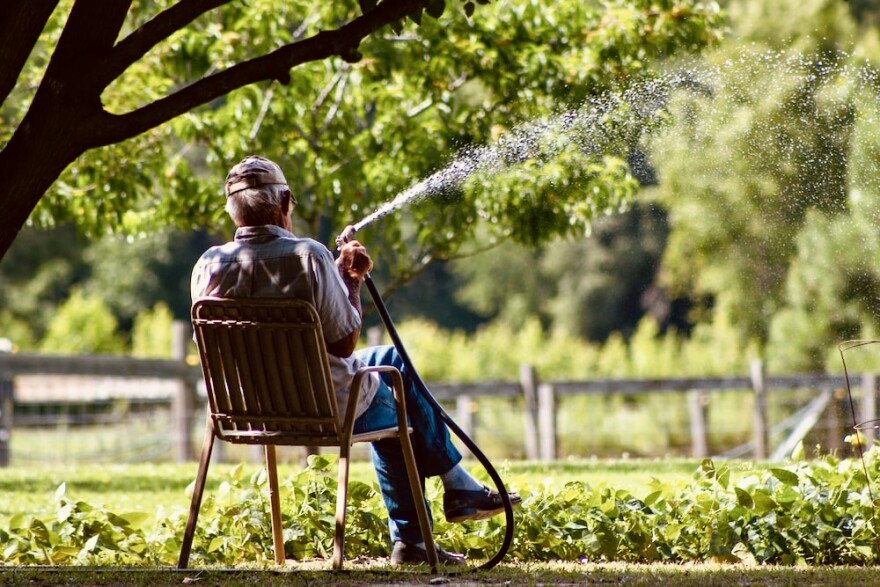Junction City’s water emergency has been upgraded to Alert Stage 2. Residents are under a mandatory restriction to reduce water usage by 30%.
When water levels dip to half what they should be, Gary Kaping gets nervous. As Public Works Director it’s his job to maintain Junction City’s four wells and ensure there’s enough water for human consumption and fire protection.
In early July, residents were requested to voluntarily reduce water use after a well lost power. When that didn’t work, Kaping made water restrictions mandatory.
“There’s no way around it for me to feel safe for our customers, our residents, in the event of a fire—unless I do this,” said Kaping.

Under Stage 2, watering lawns and gardens is only allowed on weekdays between 6 p.m. and 6 a.m. Car washing is prohibited. Restaurants must post drought notices and only offer drinking water upon request.
The mandatory restrictions were implemented on Tuesday. Kaping said if the community continues to curtail use, water tanks should refill in about three weeks.
Kaping said compliance is key to getting out of this emergency. He won’t go on “water patrol” but said there will be enforcement. If someone violates more than once, there is a fine of $300 per incident.
Since the mandatory restrictions went into effect this week, Kaping said water levels have risen slightly. He thanked residents for their help and added everyone in Junction City is in the same boat—including himself and his Public Works staff.
“We are all responsible to reduce water use. Every foot of water we lose in our tanks is about 90,000 gallons, and we're 10 feet lower than we want to be. So that’s about 900,000 gallons of water that we don’t have in reserve in the case of an emergency.”

As part of Junction City’s Water Curtailment Plan, these restrictions are now in place to cut back on household water usage.
· Reduce the frequency that you water the lawn.
· Liming any watering of lawns, landscaping and gardens to no more than 15 minutes per zone or area.
· No city water used to wash sidewalks, walkways, streets, driveways, parking lots or other hard surface areas.
· No use of city-supplied water allowed to clean, fill, or maintain levels in decorative fountains.
· No use of city-supplied water to wash vehicles.
· Hydrant and water main flushing for emergency use only.
· Restaurants required to post draught notices and offer drinking water only upon request.
· Major water users must reduce lawn or landscaping watering to no more than 50 consumption units per day. A "major water user" is a city water customer who generally averages a minimum of at least 100 consumption units per day during the summer months for outdoor landscaping or lawn watering.




